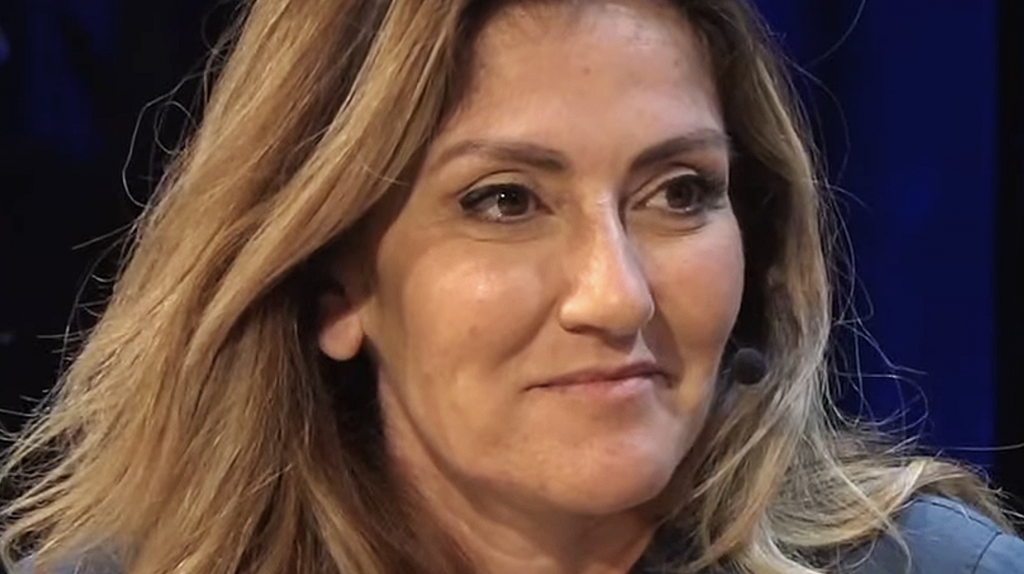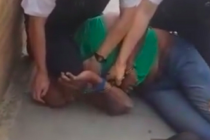Police in the Netherlands will be banned from wearing religious items of clothing, such as headscarves, yarmulkes, and crucifixes with their uniform, Justice Minister Dilan Yeşilgöz-Zegerius announced on Wednesday.
The VVD Minister told Parliament that new rules being introduced will ensure “neutrality of the uniform”, adding that, “The word uniform says it all: it should always be the same with a police officer on the street.”
The ban on religious symbols will only apply to police officers when they are operating on the street. Those working at the police station or other non-public facing roles will still be able to wear their religious clothing.
Explaining the new policy and batting away claims it will result in discrimination, Minister Yeşilgöz-Zegerius said:
“It is sometimes said that this has to do with discrimination, but that really falls short of what this is really about: neutrality.
“The police is an inclusive organisation that is working hard to be even more inclusive … I don’t think a visible expression of a religion or belief is appropriate for officers in uniform. These are people who represent the government and who are mandated to use force if necessary.”
The controversial policy is being introduced by Prime Minister Mark Rutte’s People’s Party for Freedom and Democracy (VVD), in part, to appease the right-wing parties it is in coalition with and other populist parties in Parliament, including the Islamophobic Party for Freedom (PVV) led by Geert Wilders.
While the policy has broad-based support among the political parties, it has been heavily criticised outside.
Social media posters have claimed the policy is “bigotry dressed up as neutrality”, given that people come in all shapes and sizes, and skin colours, so there is no such thing as a ‘uniform’ police officer, and this policy panders to those who are anti-religion and, more often, anti-Islam.
Others, such as Rabin Baldewsingh, the National Coordinator Against Discrimination and Racism (NCDR), have accused the government of failing to discuss the implications of the policy, which they say will exclude certain sections of society.
“You’re not serving society if a section of society is excluded from playing their full part because of what you think,” Baldewsingh said.
Vanmiddag is een 41 jarige motoragent van de Lokale Politie #Oostende (#Belgie) omgekomen bij een verkeersongeval nabij de stad #Brugge. IPA Nederland wenst de familie, vrienden, maar vooral ook collega’s van de overleden motoragent enorm veel kracht en sterkte. ^LH pic.twitter.com/AfxK1rMSks
— International Police Association The Netherlands (@ipa_nederland) October 4, 2021
The British approach to police uniform varies markedly to the Dutch, where religious beliefs are not only accepted, but incorporated into police uniform, from turbans for Sikhs to hijabs for Muslim woman. These inclusive rules have resulted in a more representative police force with officers drawn from a broader cross-section of society.
The new restrictions on Dutch police uniforms are all the more striking given Yeşilgöz-Zegerius’s roots. The 46-year-old Ankara-born politician is of Turkish-Kurdish heritage, who came to the Netherlands as a child in the 80s after her activist father Yücel Yeşilgöz fled Turkey following the military coup of 1980.
For years, Yeşilgöz-Zegerius’s native homeland discriminated against its visibly Muslim citizens, preventing them from taking up jobs in the public sector and from attending higher education institutions. These bans were finally lifted by Recep Tayyip Erdoğan when he became Prime Minister of Turkiye.
In Europe, a growing intolerance to Islam and the increase in populism has resulted in governments operating in the oppositive direction, passing regulations restricting the attire of visibly Muslim women in particular, giving employers the green light to adopt anti-religious uniform policies . Two years ago, the European Court of Justice ruled such policies were lawful as long as they were applied to applied to “all workers in a general and undifferentiated way.”
Photo of Dutch Justice Minister Dilan Yeşilgöz-Zegerius, Nov. 2022. Photo © De Balie, CC BY 3.0 / Wikipedia




